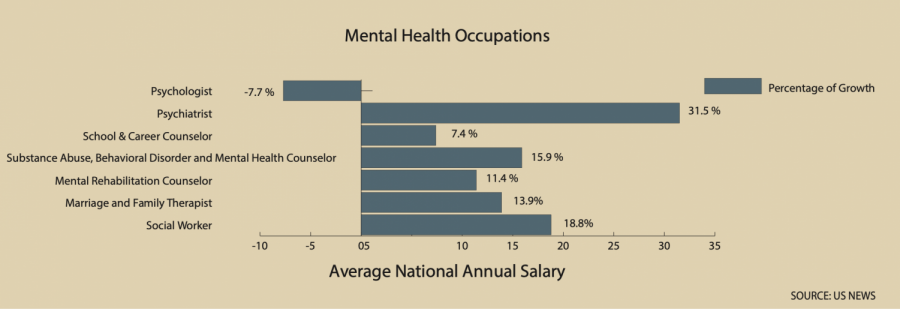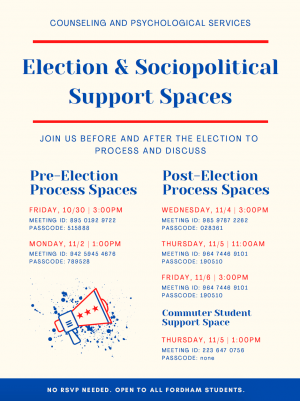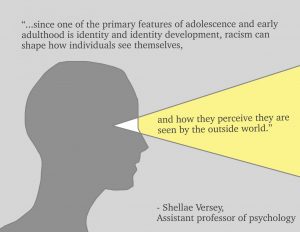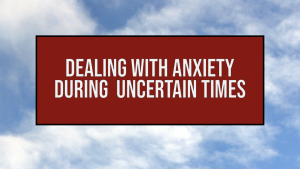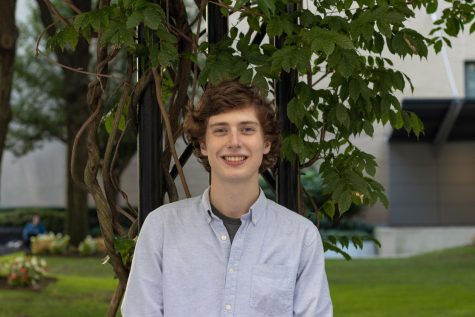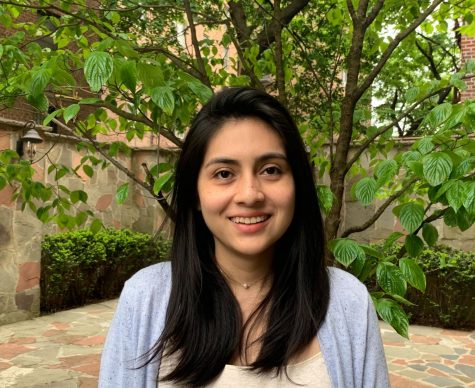Mental Health and School Counseling Programs Project Greater Enrollment
Programs struggle to keep up with increased demand and awareness for mental health services
Mental health professions have generally seen noticeable growth over the years. Recent events over the year have increased the demand for licensed mental health counselors dramatically.
November 17, 2020
The year of 2020 has been predominantly defined by its many changes and disruptions. Recent events in 2020 have prompted an increased demand for mental health services across all disciplines — and graduate programs are struggling to keep up.
The COVID-19 pandemic forced people to socially isolate at home and fear for themselves and their loved ones. The killing of George Floyd sparked a nationwide movement against police brutality, and the 2020 election was strikingly divisive.
All of these events have had tremendous impacts on people of all ages and backgrounds, from kindergarteners all the way to college students. It is no surprise that the demand for mental health counseling has dramatically increased over the course of the year, and graduate programs that provide students with the credentials to effectively counsel and better the wellbeing of their clients have recognized the growing need for licensed practitioners.
“Look at what’s happening: the pandemic, racial tensions, political tension, trying to do school on Zoom — the amount of stress and adjustment is just overwhelming.” Joseph Ponterotto, professor in the Graduate School of Education
Mental health counseling and school counseling are two similar yet very distinct professions within the field of psychology. Joseph Ponterotto, professor in the Graduate School of Education (GSE)’s mental health counseling program, explained that school psychologists and counselors are solely accredited to work with students in school settings, while mental health counselors are authorized to practice clinical therapy in any field, including colleges and universities but not in K-12 schools. For example, a school may employ a school psychologist to administer mental aptitude tests and tailor special needs programs to students, while mental health counselors would interact directly with students.
Ponterotto described how licensed mental health counselors are in demand now more than ever, citing the turbulent year as the main culprit for many people’s stress. “Look at what’s happening: the pandemic, racial tensions, political tension, trying to do school on Zoom — the amount of stress and adjustment is just overwhelming.” The changes wrought upon people’s everyday lives has created what Ponterotto called “a perfect storm of stress.” From worrying over the future of the nation, to lifestyle changes like social distancing and staying at home while juggling school, work and family obligations, Ponterotto explained how many people could benefit from speaking to a mental health professional and learn how to better cope with stress while improving their mental well-being.

The increased demand for licensed mental health practitioners has been recognized by university graduate programs, including Fordham. A recent financial forecast projected “huge growth” by 2028, with universities like Fordham standing to greatly benefit if they invest more into their mental health counseling and school counseling graduate programs, which are two separate masters programs. Mental health counseling in particular has a bright outlook, mainly due to the expansive variety of workplaces and environments in which a licensed counselor can work: from schools to businesses, hospitals to correctional facilities — “everybody benefits when mental health services are embedded within the system,” Ponterotto said.
Although mental health professionals are in greater demand than ever, universities generally have not given enough resources to mental health services meant to treat students. Ponterotto attributed this to the often already-strapped budgets that colleges and universities have in order to operate, as well as the tendency to allocate more resources to other departments and hire professionals in other fields. “Budgets are tight, and usually (colleges and universities) hire a teacher or a tech person before a school counselor,” Ponterotto admitted.
“Everybody benefits when mental health services are embedded within the system.” Joseph Ponterotto, GSE professor
Despite these current restraints, Ponterotto is confident that mental health services and professional mental health counseling education have a bright future ahead. He noted in particular the ever-increasing acceptance of mental health issues and lessening the stigma against seeking treatment. “You hear celebrities, star athletes, musicians talking about how mental health therapy has helped them,” said Ponterotto. This in turn encourages ordinary people to seek mental health treatment “not only for help with one’s struggles in a specific field or environment, but also for simply feeling better about yourself and the world around you.”
Mental health professionals have adapted to social distancing by primarily continuing to serve clients via telehealth or teletherapy — speaking with a client virtually via phone, computer or other device. However, Ponterotto stressed the large disparities within school counseling resources between school districts, creating a dilemma where “people are more open to refer students to school counselors, but there aren’t enough counselors to meet all of these needs.”
The highly competitive nature of graduate school doesn’t help the matter, with many programs only admitting a small percentage of students each year out of hundreds or even thousands of applicants. According to Ponterotto, Fordham’s master’s program in mental health counseling can only admit about 20 to 30 applicants per year, while the school counseling program enrolls only around 12 to 15 students. Ponterotto blamed this disparity on a “combination of less interest and less budget,” with greater interest in obtaining a mental health counseling degree among graduate program applicants as opposed to school counseling, which has a comparatively smaller job market.
Another appeal of a mental health counseling degree over school counseling for potential graduate students is that those who have obtained a masters in mental health counseling are certified in New York state to work in private practice. Private practice, which typically involves scheduling appointments with clients on one’s own time rather than through an institution, boasts a greater job market and average salary compared to other psychological fields, especially school counseling.
School psychologists are still high in demand, and with increasing numbers of school counselors retiring in light of COVID-19, according to Ponterotto, the demand for licensed school psychologists and school counselors will only increase in time.
Students enrolled in Fordham’s Graduate School of Education (GSE) like Rebecca Altschul, GSE in School Counseling Class of 2021, feel that recent events have given them unique insights into their studies. “I think especially after this pandemic mental health careers are going to become more essential especially in schools,” Altschul said.
Another student in the school counseling program, Liana McCollough, GSE ’22, had a similarly positive outlook, echoing Ponterotto’s earlier remarks of the stigmatization of mental health discussion while adding, “there will be more mental health professionals in our school system which will impact our youths’ mental health, giving our youth the tools necessary for a healthy adulthood.”
McCollough noted how school resource officers, or police officers, tend to be employed in greater numbers in schools as opposed to mental health counselors. “we are filling our school with officers who are not trained to tackle these issues but are trained to ‘enforce’ rules,” McCollough said. She encouraged schools to “be tackling why our youth are acting out” and to engage with troubled students rather than punishing them.
While obtaining a degree through mostly virtual classes may not be ideal in becoming licensed practitioners, their future prospects are looking bright.

